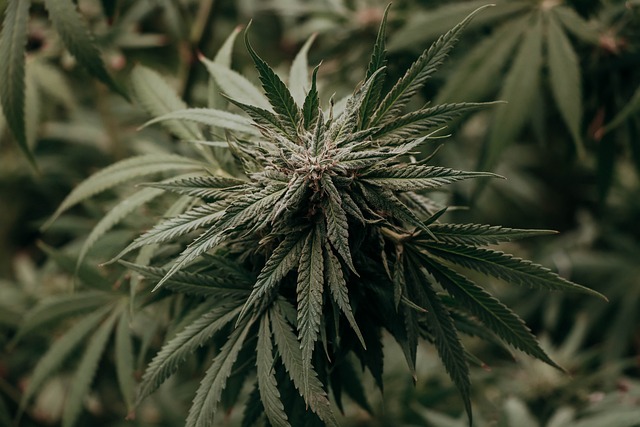
Exploring THCa Flower: Strains, Effects, and More
Exploring THCa Flower: Strains, Effects, and More
The world of cannabis is vast and varied, with numerous compounds contributing to its effects from indacloud.co. One such compound gaining attention is THCa, or tetrahydrocannabinolic acid. Unlike its more famous counterpart, THC, THCa is non-psychoactive in its raw form. This article delves into the intricacies of THCa flower, exploring its strains, effects, and potential benefits.
Understanding THCa
THCa is a cannabinoid found in raw and live cannabis. It is the precursor to THC, the compound responsible for the psychoactive effects of cannabis. When cannabis is heated through smoking, vaping, or cooking, THCa undergoes decarboxylation, converting into THC. This transformation is what gives cannabis its characteristic high.
In its raw form, THCa does not produce any psychoactive effects. This makes it an attractive option for those seeking the therapeutic benefits of cannabis without the high. Research suggests that THCa may have anti-inflammatory, neuroprotective, and anti-emetic properties, among others.
Popular THCa Strains
Several cannabis strains are known for their high THCa content. These strains are often sought after for their potential health benefits and unique profiles. Here are some popular THCa-rich strains:
- Jack Herer: Known for its uplifting effects, Jack Herer is a sativa-dominant strain with a rich THCa profile. It is often used to boost creativity and focus.
- Girl Scout Cookies: This hybrid strain is famous for its sweet aroma and balanced effects. It offers a mix of relaxation and euphoria, making it a favorite among many users.
- White Widow: A classic strain with a balanced THCa content, White Widow is known for its potent effects and earthy flavor. It is often used to alleviate stress and pain.
- Blue Dream: A sativa-dominant hybrid, Blue Dream is celebrated for its calming effects and sweet berry aroma. It is popular among those seeking relief from anxiety and depression.
Effects and Benefits of THCa
While THCa does not produce a high, it offers a range of potential benefits. Research into THCa is still in its early stages, but preliminary findings are promising. Here are some potential effects and benefits of THCa:
- Anti-inflammatory: THCa may help reduce inflammation, making it a potential option for those with conditions like arthritis or inflammatory bowel disease.
- Neuroprotective: Some studies suggest that THCa may protect brain cells, offering potential benefits for neurodegenerative diseases such as Alzheimer’s and Parkinson’s.
- Anti-emetic: THCa may help reduce nausea and vomiting, which could be beneficial for patients undergoing chemotherapy or those with chronic gastrointestinal issues.
- Antioxidant: As an antioxidant, THCa may help protect cells from damage caused by free radicals, potentially reducing the risk of chronic diseases.
Consumption Methods
There are various ways to consume THCa, each offering different experiences and benefits. Here are some common methods:
- Raw Consumption: Consuming raw cannabis leaves or flowers in smoothies or salads preserves the THCa content, allowing users to benefit from its non-psychoactive properties.
- Juicing: Juicing raw cannabis is another way to consume THCa. This method is popular among those seeking the health benefits of cannabis without the high.
- Tinctures: THCa tinctures are liquid extracts that can be taken sublingually or added to food and drinks. They offer a convenient way to consume THCa with precise dosing.
- Topicals: THCa-infused creams and balms can be applied directly to the skin, providing localized relief from pain and inflammation.
Case Studies and Research
While research on THCa is still emerging, several studies highlight its potential benefits. For instance, a study published in the British Journal of Pharmacology found that THCa exhibited anti-inflammatory properties in animal models. Another study in the Journal of Neuroimmune Pharmacology suggested that THCa might have neuroprotective effects, offering hope for patients with neurodegenerative diseases.
These findings, along with anecdotal evidence from users, suggest that THCa could play a significant role in the future of cannabis-based therapies. However, more research is needed to fully understand its effects and potential applications.
Conclusion
THCa flower offers a unique opportunity to explore the benefits of cannabis without the psychoactive effects. With its potential anti-inflammatory, neuroprotective, and anti-emetic properties, THCa is gaining attention as a promising compound in the cannabis community. As research continues to unfold, THCa may become an integral part of cannabis-based therapies, offering new avenues for health and wellness.
Recent Posts
- Fungi And Fitness– Exactly How They Collaborate For Boosted Efficiency.
- Navigating the World of CBD Oil for Canines: What You Required to Know
- The Growing Trend of CBD for Pets: What Owners Ought To Take into consideration
- Avoiding Rip-offs: What to Watch Out for When Choosing a Gold Individual Retirement Account Firm
- Exactly How to Whiten Teeth After Braces: Tips for a Sensational Smile